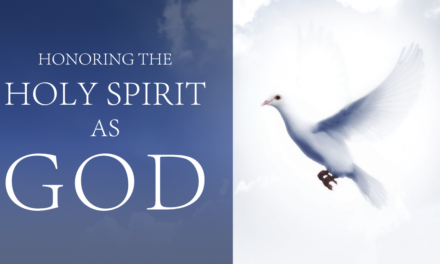In a context of highlighting the ministry of the Spirit, Paul makes a connection to boldness. He said, “Seeing then that we have such hope, we use great plainness [boldness] of speech” (2 Cor. 3:12).
The reference to such hope summarizes Paul’s unfolding of the powerful ministry of the Holy Spirit in the previous verses. Though the ministry of the law was “glorious,” the ministry of the Spirit is considered “more glorious” (2 Cor. 3:7-8) for the ministry of the Spirit gives life (2 Cor. 3:6).
Jesus finished His work on the cross, died, rose again, and was exalted to the right hand of the Father. There He received the promise of the Spirit and sent the Spirit (Acts 2:33). This epic event launched the age of the Spirit that we still find ourselves in today. And where the Spirit is yielded to as Lord, there is liberty (2 Cor. 3:17)—not the liberty to do our own selfish will, but the freedom to do the will of Jesus.
Back to our original text: “Seeing then that we have such hope, we use great plainness of speech” (2 Cor. 3:12). When we have such confidence in the ministry of the Spirit, we can use great boldness of speech. The core idea of the word plainness is freedom to speak. Boldness is not brashness, however. Brashness is something we can do in the flesh. Boldness is a freeness of speech. It’s being free to say what ought to be said.
What a great truth! When we walk in the provision of the Spirit’s leadership and power, we are enabled to be unashamed of Jesus. May we ever keep in step with the Spirit. This results in the freeness to talk about Jesus with divine power.

John Van Gelderen
Post Author













This same Greek word is translated boldness in Ephesians 3:12 = In whom we have boldness and access with confidence by the faith of him. It refers to the frankness we have with God because we are in His Son. It doesn’t mean we can be rude or caustic; it simply means that we can pour out our hearts to God in a free and forthright manner. What a great truth!
Yes, Amen!
Great brother John, I was witnessing to a eighteen wheeler driver it was wonderful to see how the Spirit had prepared his heart for the truth of the Gospel and gave me that boldness in love.
That is how it ought to be!